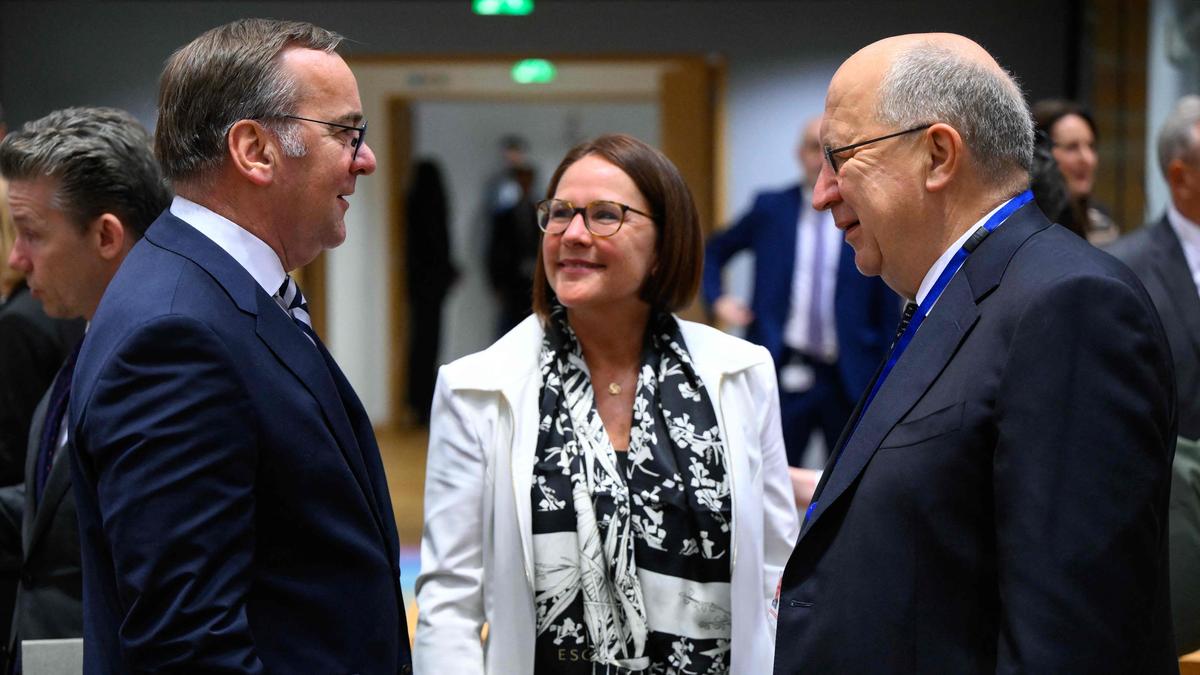Germany has offered to take the lead on joint European Union projects regarding air defence, land and marine systems, Defence Minister Boris Pistorius said Tuesday, as the bloc ramps up its own military deterrent to Russian aggression.
“We have negotiated framework agreements for air defense systems, and we’re offering other countries to get on board and get the same conditions we have negotiated with industry,” Pistorius told reporters in Brussels ahead of a meeting of the bloc’s defense ministers.
Brussels has urged members to jointly invest in areas of heightened common interest, particularly air defense. One way to achieve that, said the German defense minister, was for countries’ contributions to play to their particular strengths in a bid to give Europe “more bang for its buck.”
The proposal comes amid renewed European concern about President Donald Trump’s proposals to roll back US security commitments to Europe. In March, those signals prompted the European Commission, the EU’s executive arm, to propose new approaches for the continent to shoulder the burden for its own defense.
The EU’s member states have given initial approval to a €150 billion defense fund that will distribute money to countries looking to jointly invest in security capabilities such as ammunition, drones and the protection of critical infrastructure, Bloomberg News earlier reported.
The fund comes in addition to new rules that allow member states fiscal flexibility for defense spending, which could mobilize a combined €800 billion.
Pistorius highlighted Germany’s expertise in air defence, pointing to its role in the European Sky Shield Initiative, launched after Russia’s full-scale invasion of Ukraine. The project, which has the support of 24 Nato members, aims to build a ground-based European air defence system which can shoot down ballistic missiles.
Berlin can also offer European partners know-how with land and marine defense systems, he said. “We also offer framework agreements for Leopard 2A8 tanks and for 212CD-class submarines,” Pistorius added.
Germany is also strengthening Nato’s eastern flank with the deployment of a battle tank brigade in Lithuania, with up to 5,000 troops in coming years. As part of those efforts, Chancellor Friedrich Merz and Pistorius will join a ceremonial roll call of the so-called Panzerbrigade 45 in Lithuania on Thursday. It will be the first German brigade-sized unit to be based abroad permanently since World War II.
The EU’s defence chief, Andrius Kubilius, said Monday that the commission will present a proposal on 17 June aimed at simplifying procedures and lifting regulatory barriers to encourage joint defence procurement and aid the transportation of defence products within the bloc.
The aims include fast-tracking permits for the construction of new defense plants or expanding existing ones, he said.
However, the commission would also need to address environmental restrictions on defense industry expansion, Kubilius said.
The simplification or even repeal of environmental legislation restricting the use of certain chemicals used in defense manufacturing is also being considered, according to a source familiar with the matter.
©2025 Bloomberg L.P.
